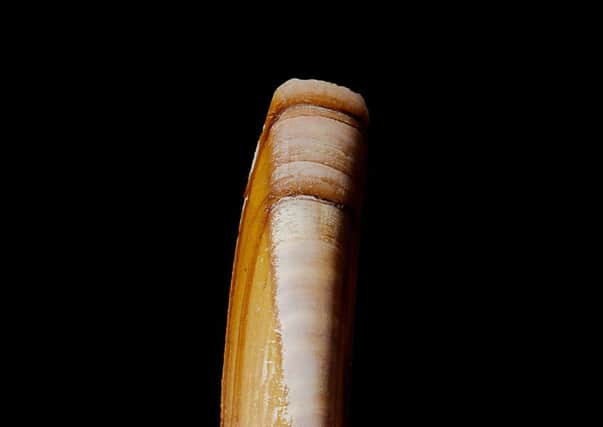Row over controversial electrofishing for clams


Until last month razor clams could only be legally harvested in Scotland by hand, by divers or by different types of dredges.
But under new rules electrofishing is the sole method allowed to catch the shellfish commercially, while individuals may hand-gather up to 30 for personal consumption.
Advertisement
Hide AdAdvertisement
Hide AdElectrofishing has been prohibited across the European Union since 1998, except for scientific research.
However, it had become the most commonly used technique due to its efficiency and accuracy, and a burgeoning demand from overseas has seen a rise in the number of boats operating illegally around Scotland.
It is a problem the Scottish Government has admitted it cannot effectively police due to the difficulty of catching criminals “in the act”.
The trial has sparked criticism from fishing crews and sustainable fisheries organisations, who fear it could result in devastation of razor clam stocks and put people out of work.
They back the need for such an investigation but claim the methodology is flawed and the study is merely a way of legitimising an industry that has spiralled out of control.
Nick Underdown, head of campaigns for green fisheries group Open Seas, claims the plans are “grossly irresponsible”. He fears they could result in overfishing and will fail to accurately assess the impacts of electrofishing on other marine life.
“To deal with criminal fishing activity the Scottish Government has legalised this potentially damaging fishery by the back door,” he said. “We support a controlled trial in principle, and it could provide some useful lessons for other inshore fisheries. However, in sustainability terms, this trial is grossly irresponsible.
“The Scottish Government openly admits it doesn’t know current stock levels of razor clams and yet has opened up huge areas of razor beds to electrofishing.
Advertisement
Hide AdAdvertisement
Hide Ad“Without baseline surveys to inform stock control measures the trial could easily backfire, damaging Scotland’s reputation for high quality and responsibly sourced shellfish.”
Skipper Alasdair Hughson, who owns shellfish firm Keltic Seafare, believes any trial should be restricted and thorough.
He said: “What I would like to see done here is a focused, purely scientific study to show us whether or not this method of fishing is benign in the environment or otherwise.
“We need to have confidence that the results of this trial will stand up to scrutiny.”
Electrofishing involves probes being pulled slowly over the seabed from a fishing vessel. The electric field stuns the shellfish, causing them to emerge from their burrows.
Divers follow behind, collecting the live clams.
Official figures show the value has increased from below £500,000 in 2006 to £2.3 million in 2016, when 460 tonnes were landed.
The decision to launch a trial came following a report from national fisheries agency Marine Scotland and an official consultation.
It technique is widely considered to be less environmentally destructive than traditional methods such as dredging.
Advertisement
Hide AdAdvertisement
Hide AdHowever, there is little evidence to back up the theory, and most respondents to the consultation called for further research to establish the full impact on ecosystems.
Rural economy secretary Fergus Ewing did not address the accusations. He said: “These scientific trials will help us understand the potential economic impact of the industry, will provide useful evidence on how this fishery can be managed effectively and sustainably and contribute to Scotland’s reputation for quality seafood.”